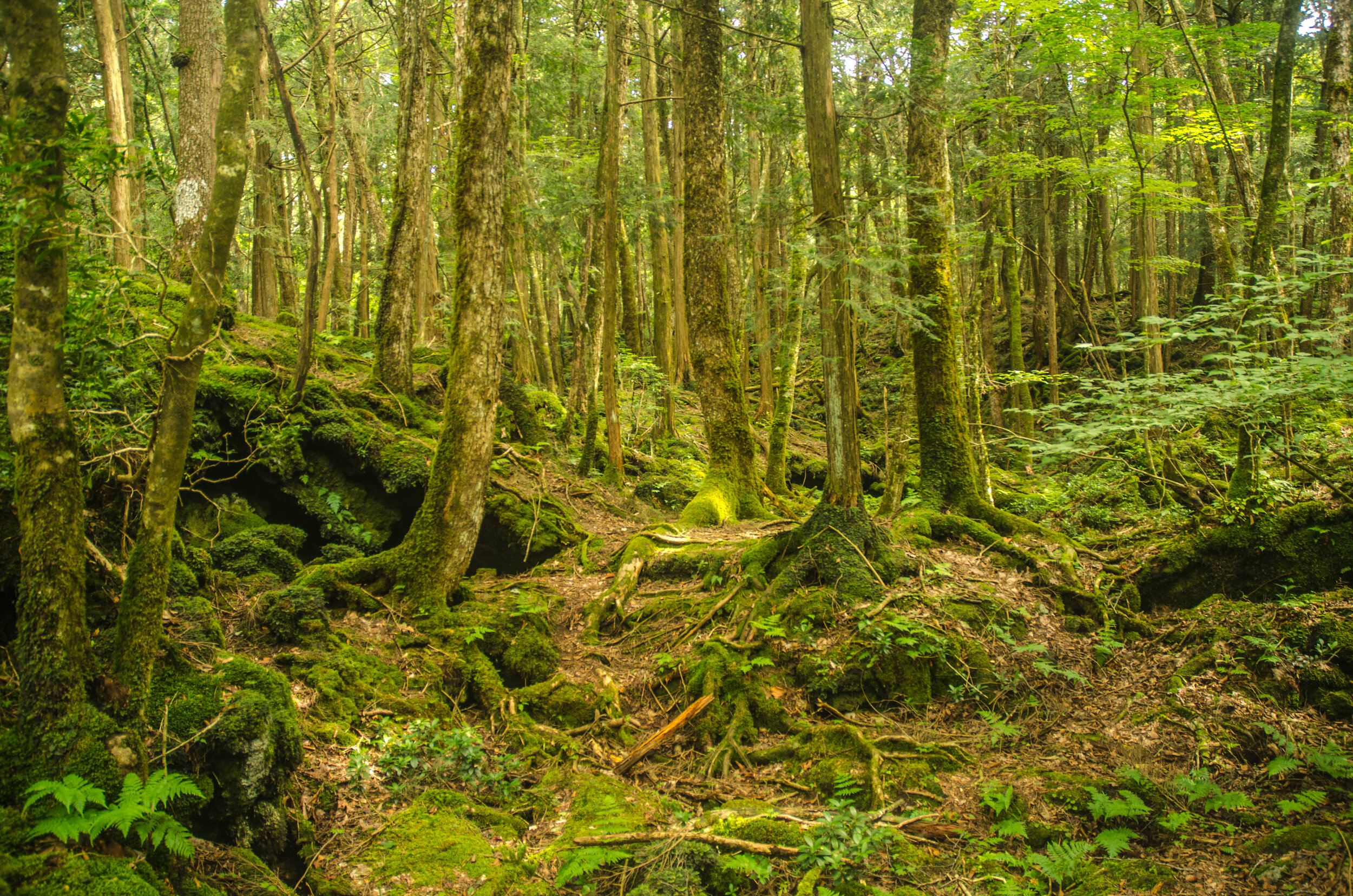‘Wolf Forest, Basket Forest, and Thief Forest’ (1924) by Miyazawa Kenji (1896-1933)
Aokigahara © Wayne Hseih 2016
This is a short, concise story which combines elements of a harsh and rural life with a distinctly Japanese element of magical realism and animism.
Set during an undisclosed time period, it chronicles the establishment of a community near Mt. Iwate (in Tōhoku’s Iwata prefecture). The men ask the three forests for permission to build and each welcome them. However, over the next few years, a series of mysterious events lead the townsfolk into each forest in turn in search of something precious to the nascent community: children, millet and farming tools.
Within the context of the story, the forests and wolves are treated as sentient and on a similar par to the human characters. The humans are similarly particularly aware of their environmental neighbours, asking their permission before doing anything and attempting to live in harmony with wolves and forest alike, There is no sense of actual danger in any of the scenarios, especially when the children are taken by the wolves, rather than being devoured, they are treated to warm fires and a feast of mushrooms and nuts. Indeed the missing items are treated almost as a prank, as opposed to serious, malicious theft, forcing the farmers to explore deeper into their environs and interacting with older forces and ancient forests, each with their own characters.
The story balances a symbiotic lifestyle in which humans rely on the land and the land rely on humans for protection and due care, with a magical element which betrays these ancient forests as kami in their own rights. This story, written by a devout Buddhist and farmer, turns the environment into a character, though much more ancient and mysterious, giving the story a unique feel to it which is seldom seen in western literature.
Bibliography
Culture Trip/Nirei, H. (2016) ‘Kenji Miyazawa: The Japanese Writer Who Echoed The Natural World’. Available at: https://theculturetrip.com/asia/japan/articles/kenji-miyazawa-echoing-the-natural-world [Accessed on 16th October 2021]
Miyazawa K. (2012) “Wolf Forest, Basket Forest, and Thief Forest”, translation by Inoue, K., in Reading Colonial Japan, edited by Mason, M. and Lee, H. (Stanford, 2012), pp. 181-87.

